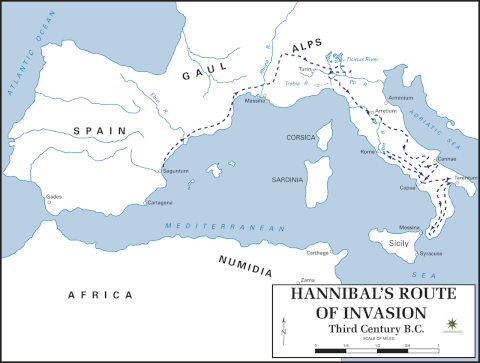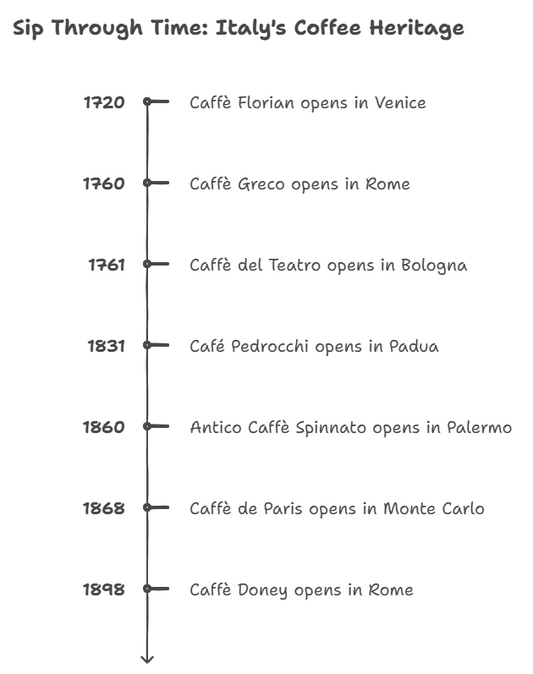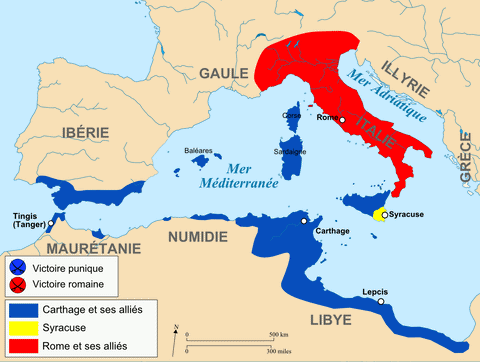
In 146 BC, the Romans defeated the formidable Carthaginian forces at the Battle of Carthage. The Punic wars are one of the most dramatic wars there has been in history.
Why Rome emerge as the victor against Carthage fall down to 3 reasons:
- Great Rome Positioning: The Significance of Strategy
- Expert Military Leadership: Discipline Was Key
- Economic Superiority: The Financial Side
Great Rome Positioning: The Significance of Strategy
One of the main reasons Rome won its battles against Carthage can be attributed to its choice of locations for warfare. Rome was well aware that it had a disadvantage in terms of numbers and training in comparison to its adversary. Therefore, they strategically chose their grounds wisely when it came to open warfare and naval operations. To this effect, they established outposts near Carthage prior to any major conflicts which enabled them to launch a surprise attack against it when they were so inclined - an advantage that gave them the upper hand many times during these namesake Punic Wars.
The city of Rome has captivated the imagination of people around the world for millennia with its history, culture, and political importance. In its heyday, Rome was one of the largest cities in the world which it is estimated that close to one million Romano-Italians called home. Traceback how big Rome truly was at its peak, from inspiring monuments and structures to revolutionary advancements made in art, war tactics, and government.
Expert Military Leadership: Discipline Was Key
The second factor in play involved war leadership or generalship; an aspect where Rome truly shined due to its highly organized military system replete with discipline and a clear chain of command. Not only did this give them more control on the battlefield but also allowed for greater coordination during tactical operations in both ground battles as well as naval engagements across numerous fronts at once – something which was used to great effect towards subduing enemy forces such as those from Carthage whenever there was a confrontation between them and Roman troops.
Economic Superiority: The Financial Side
Finally, another important element which heavily contributed towards Rome's conquest was its financial leverage since it was able to make use greater resources than their opponent ever could in order to oversee major expeditions overseas or acquiring military technology such as siege engines when faced with an imminent threat posed by savage hordes emanating from outside territories such as Africa or Iberia who regularly marauded through borders into mainland Italy itself upon several occasions leading up until this landmark event - something which forced Rome into deploying whatever defense mechanisms they had available at their disposal in order avoid demoralization amongst their citizenry due rampant piracy, just like what happened during one such notable expedition under Lucius Mummius Achaicus who ultimately managed defeat his adversaries at Corinth and bring back a significant amount of plunder taken away after securing victory against those foreign forces, thus achieving economic superiority over other city-states including those from North Africa like that found further south at what is today known modern-day Tunisia.
Rome is one of the oldest and most powerful empires in history. How did a small society on the banks of the river Tiber become such a formidable power? In this article, we explore the remarkable rise of Rome; from its humble beginnings as a tiny agricultural community to its eventual rule over a vast empire. Learn how Rome's impressive military strength, expansionist policy, political acumen, and ingenious engineering led it to become one of history's mightiest civilizations.
What were the Punic Wars?
The Punic wars were way back during the classical period and were between Rome and Carthage. Both clans were fighting for what they said was “the whole world”. It was basically World War II of 3BC. Rome and Carthage were the two greatest powers at the time, and the impact of the war between them is still going on today, thousands of years later. The thing is, after these wars, Rome became the dominant power in the world (or at least the western, not-America world) for the next 700 years of history.
Punic comes from the word Phoenician, which were the original settlers of Carthage. When the war began, Rome controlled most of what is Italy today, and Carthage controlled most of northern Africa and a part of Spain, as well as a series of islands in the Mediterranean, which are the main source of the conflict.
The first Punic War
The first war was over Sicily, lasted over 20 years, involved over a million soldiers, and caused both civilizations to lose about a fifth of their male population. In this war, the Carthaginians slowly lost land as Rome engaged in a series of naval strategies that they completely mismanaged, which is why the war was pretty even at first. However, later on, Rome got the whole navy part learned and begun to win at sea too, so Carthage dropped out of the war-making Rome victorious.
The Second Punic War
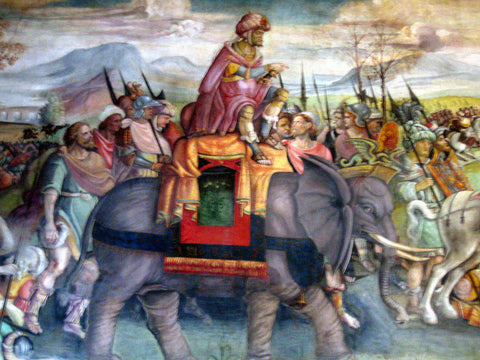
What connects the First and Second Punic Wars is Hamilcar Barca, a general that lead the reconquer of the Spanish Carthaginian territory. After he died, his son in law took over the army and territory he had gained and made a treaty with the Romans that established the limits for the Spanish Carthaginian territory. This treaty was the cause of the second war.
After Hasdrubal was assassinated, Hamilcar’s son Hannibal took over.
Hannibal began to conquer more Spanish land, trying to expand to the north, closer to the Ebro River, which was the limit set in the treaty mentioned above. As this happened, the Romans began to worry and the tension between the two civilizations grew further. Then, there was a Greek city in the north of the Spanish territory called Saguntum. This city had signed a treaty with Rome establishing itself as sacrosanct since it was on the Roman side of the river. However, Hannibal claimed the city was on their side of the River. So, the Carthaginian army attacked the city debunking the roman embassies, Rome sent no troops to this city despite having signed a treaty claiming they were under Roman protection. This was because the Romans had recently engaged in another war. So Hannibal emerged victoriously and pillaged the city, selling into slavery anyone who hadn’t been killed. So, when Saguntum fell, Rome sent an ultimatum to Carthage, they could either surrender Hannibal to Rome or face war. In case it isn’t obvious, they chose war and that’s how we see ourselves in the Second Punic War. 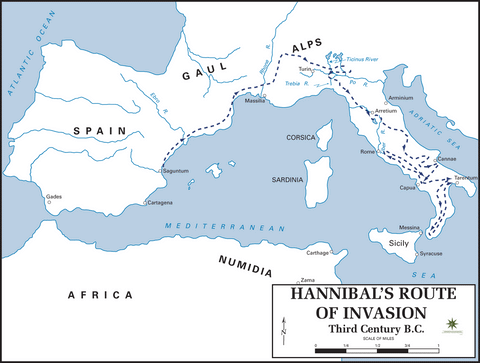
Hannibal leads his army through the Alps in order to attack northern Italy, once he gets there, despite having fewer men he manages to beat the Roman army, making the Carthaginians up for a great start. In this war, he essentially creates a rivalry with Scipio, the Roman general (and later on his whole bloodline), after badly injuring him in battle. However, though the Carthaginians were off to a good start, luring Roman cities into joining them and making themselves seem as “liberators” of the people. In the beginning, Hannibal’s army won almost every single battle that came his way. After he defeated Cannae, Rome was panicking and weak, but Hannibal decided his army was not strong enough to take Rome and Carthage kept refusing to send help. Hannibal’s army kept on winning but the victories were much smaller. His brother, who had been left fighting in the Spanish front was killed, and therefore lost most of the Spanish territory. On another front, in northern Africa, Scipio (the son) had begun to invade through Sicily. To avoid the invasion, Hannibal’s armies were called home, losing the ground they had gained in Italy.
Hannibal’s forces were terribly defeated in the Battle of Zama, this defeat was mostly due to lack of resources provided by Carthage. That is how Carthage lost the second war.
The Third Punic War
This war was fought 50 years after the second one concluded when the Carthaginian army was rearmed. The detonator was that the Romans demanded the city to be torn down and rebuilt miles inland away from the sea. Carthage refused and the third war began. Rome was much stronger and Carthage fell after three years, in hands on the army led by Scipio’s son. The Romans razed the city destroying it once and for all.
So, in fewer words. Why did Carthage lose to Rome in the Punic Wars?
The first Punic war was lost because of two main reasons:
- The Roman army was superior on land and kept making advances
- The Carthaginians didn’t improve inland, the Roman army did improve at sea taking away Carthage’s advantage.
When Carthage saw they would lose more by continuing, they retreated.
The Second Punic was has a mix of more complicated factors, but basically, it can be reduced to three causes:
- The inability of Carthage to help Hannibal’s army
- The inability of Hannibal’s army to attack Rome and end the war. Because they were too weak, and because the Romans had chosen to solidify the city and cut out Hannibal’s army supplies as much as they could.
- The defeat of Spain that took away most of the financing of Carthage
The third Punic war was simply lost because Rome decided they didn’t want Carthage bugging them anymore, and Carthage was not strong enough to prevent it.
